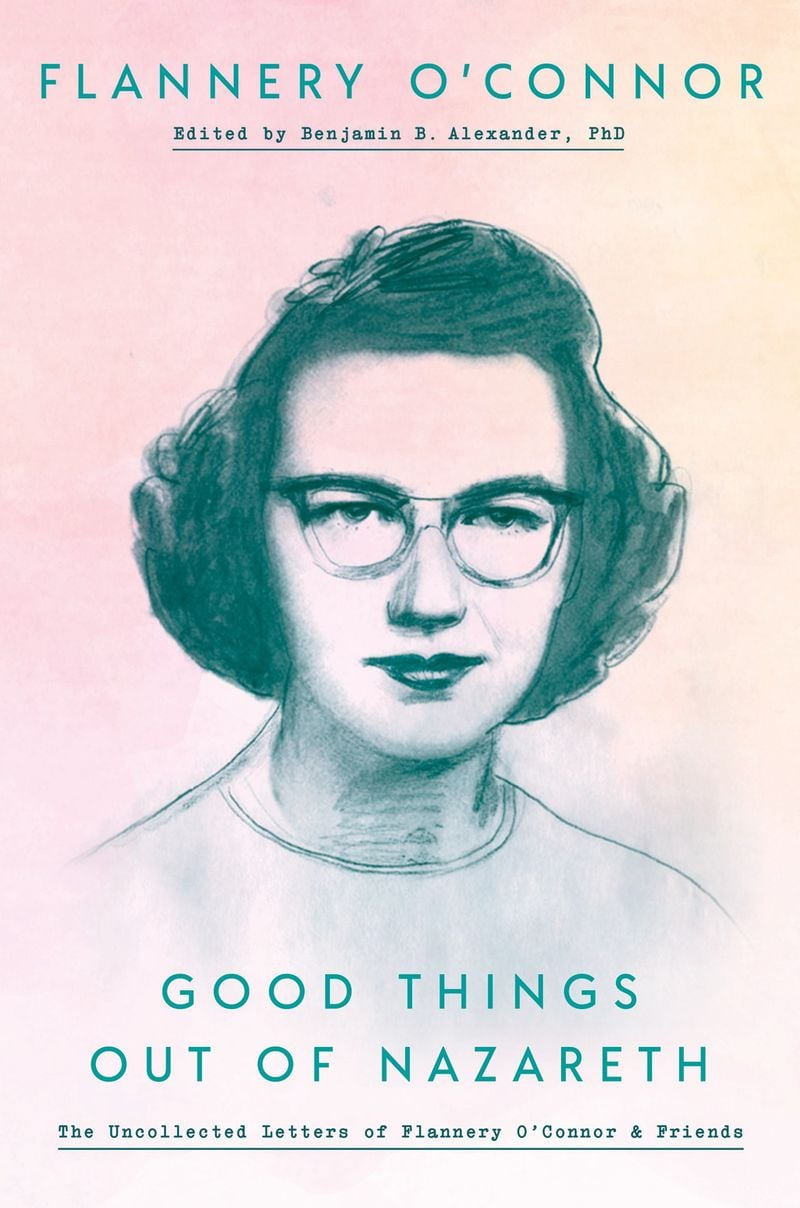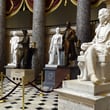When Flannery O’Connor’s letters were published in “The Habit of Being” in 1979, the exchanges between the Georgia writer and her many correspondents provided a startling window into O’Connor’s work.
Up until then, she was often described as a creator of Southern grotesques, adept at black comedy and violent endings. According to O’Connor biographer Brad Gooch, Time magazine praised her “brutal irony” and “slam bang humor… as balefully direct as a death sentence.”
O’Connor detested that description. What she revealed in her letters, especially those she exchanged with steady Atlanta correspondent Betty Hester, was that these stories were about God and grace.
Her Catholicism was central to her mission as a writer, a fact that is revealed even more strongly in a new collection called “Good Things Out of Nazareth.”
The volume offers more than a hundred of the uncollected letters of O’Connor, many of them between the writer and a Macon Jesuit priest, Father James H. McCown, who was a steady source of inspiration for the writer.
It was edited by O’Connor scholar Benjamin B. Alexander, who also provides an introduction to almost every letter, explaining the circumstances of the exchange, the events of the time, and the significance of the moment.
“I believe ‘The Habit of Being’ is underedited,” said Alexander. “If you put the context for the letters in there, you would have an epistolary biography, and that’s what my book turned out to be.”
Included is correspondence with novelist and teacher Caroline Gordon, Gordon’s husband, poet Allen Tate, novelists Walker Percy and Katherine Anne Porter, Father McCown and O’Connor’s steadiest correspondent, the reclusive Betty Hester, who is identified in “The Habit of Being” only as “A.”
One takeaway from this set of letters is O’Connor’s wicked sense of humor about all things, including herself and her literary friends.
Constantly faced with judgments about whether her stories are proper for a young audience, she addresses the issue in one letter: “Some Jesuit wanted to know what you read to preserve your innocence. Answer: the telephone book.”
She suffered greatly from the effects of lupus, which would eventually end her life at age 39, and in 1958 she made a pilgrimage to Lourdes, famed for its healing miracles. The skeptical O’Connor describes the French town as a “beautiful little village completely defaced by religious junk shops” and the healing waters as a stewpot of viruses. “People say the miracle is that no epidemics are caused. If the one before you has running sores, you get in right after him, wearing the sack he took off.”
Yet despite the acerb comments, “she does acknowledge quietly that it may have extended her life to finish that novel, ‘The Violent Bear It Away,’” said Alexander.
One also sees O’Connor’s willingness to rewrite her own work, and to accept suggestions, particularly suggestions from the novelist Caroline Gordon.
Gordon offers minute critiques of O’Connor’s stories, taking the younger woman to task over sentence construction, rhythm, imagery and pacing. “She was a great teacher of writing, but she could be extremely opinionated and overbearing,” said Alexander of Gordon.
Gordon was offering the same guidance to Walker Percy, author of “The Moviegoer,” “Love in the Ruins” and “The Second Coming.” The fame of these two students soon eclipsed that of their teacher, and “as they got more famous she got more belligerent in her instruction.”
Alexander, 70, is a retired college professor, most recently at Franciscan University in Steubenville, Ohio. Many of the letters in his collection were first assembled by Thomas Gossett, a professor of English at Wesleyan College in Macon, whose plan to publish a collection of O’Connor’s letters was superseded by the appearance of “The Habit of Being.”
Alexander also includes letters from the Walker Percy estate, the Elizabeth Hester archive at Emory University and the Flannery O’Connor estate.
“It was an exercise in persistence and trust,” said Alexander. “The number of literary estates involved, including the O’Connor estate itself, that was an exercise in persistence.”
The letters show O’Connor’s resistance to speaking out in favor of the civil rights movement (and her equal antipathy to becoming an apologist for the South.) “She wanted her fiction to do the talking,” said Alexander.
They also serve as a corrective to what Alexander considers to be history's unflattering portrait of O'Connor's mother, Regina. A successful operator of a dairy and beef-cattle farm outside Milledgeville, Regina O'Connor cared for her ailing daughter during the last decade of Flannery's short life and made her writing career possible.
She is sometimes sketched as a middlebrow Babbit. (Flannery herself writes of Regina falling asleep while reading the daughter’s work.)
“Mrs. O’Connor might not have been literary, but she was a very astute person,” said Alexander. “The heroic sacrifice she made as a caregiver in the last months of (Flannery’s) life is just astonishing.”









